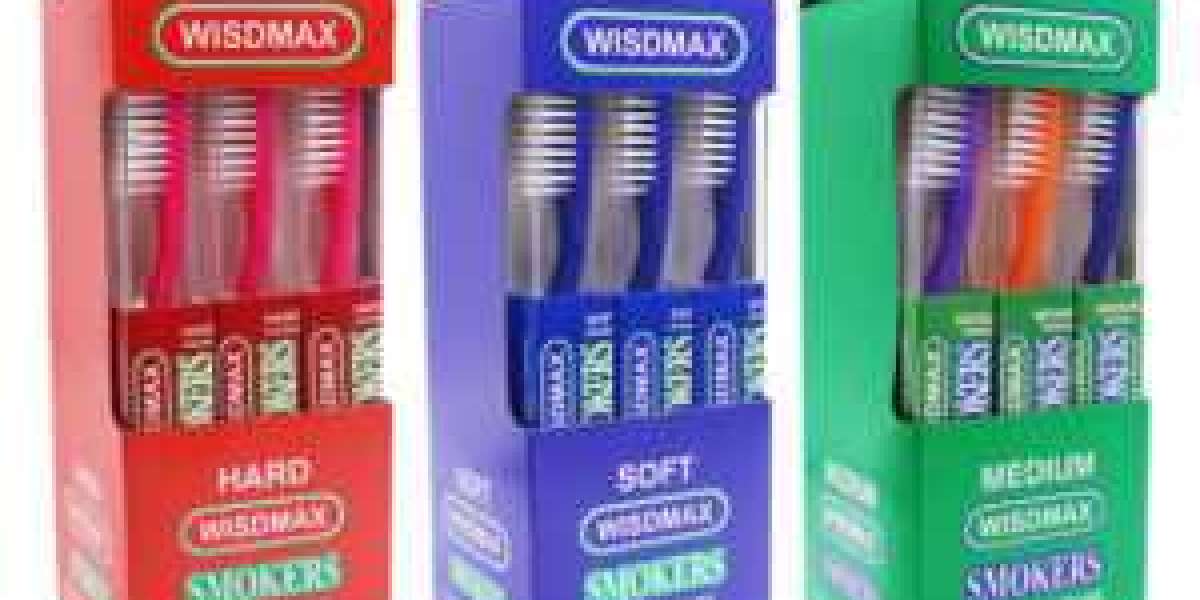This information is based on reliable sources and presented in a clear, informative way.
Understanding Smokers' Oral Health Challenges:
Smoking presents unique challenges for oral health. Tar, nicotine, and other harmful chemicals in tobacco stain teeth, dull enamel, and contribute to plaque buildup. This creates an environment conducive to gum disease, tooth decay, and bad breath. Smokers are also more susceptible to oral cancer, highlighting the importance of optimal oral hygiene practices.
Choosing the Right Toothbrush:
While no "magic" toothbrush specifically targets smokers' needs, certain features can enhance their brushing experience and effectiveness. Here's what to consider:
Bristle Type: Choose medium or soft bristles. While firmer bristles may seem tempting for removing stains, they can damage sensitive gum tissue, especially common in smokers. Soft or medium bristles effectively remove plaque and stains without irritation.
Head Size: Opt for a smaller head to reach all areas of the mouth, particularly back teeth and behind incisors, where plaque and stains often accumulate.
Grip: Select a brush with a comfortable, non-slip grip for precise control, especially if dexterity is affected by smoking-related conditions.
Tongue Cleaner: Many brushes have built-in tongue cleaners or textured areas to remove bacteria from the tongue, contributing to fresher breath.
Beyond the Toothbrush:
While the right toothbrush plays a crucial role, it's just one piece of the puzzle. Here are additional tips for optimal oral hygiene for smokers:
Brush Twice Daily: Brush for at least two minutes each time, focusing on all tooth surfaces and the gum line. Consider using an electric toothbrush with a timer for consistent brushing duration.
Floss Regularly: Flossing removes plaque and debris from between teeth, where brushing alone can't reach. Aim to floss once a day, preferably before bedtime.
Use Fluoride Products: Fluoride strengthens teeth and protects against decay. Use a fluoride toothpaste and consider using a fluoride mouthwash as an additional layer of protection.
Schedule Regular Dental Checkups: Visit your dentist every six months for professional cleanings and checkups. Early detection and treatment of oral health problems are crucial for smokers.
Additional Tips:
Quit Smoking: Quitting is the single best thing you can do for your overall health, including your oral health. Numerous resources and support systems are available to help you quit smoking.
Rinse with Baking Soda: Mix one teaspoon of baking soda with a glass of water to create a gentle rinse that can help neutralize acidity and reduce surface stains.
Use Oral Rinses: Choose alcohol-free mouthwashes containing chlorhexidine gluconate or cetylpyridinium chloride, which can help reduce plaque and bacteria.
Stay Hydrated: Drinking plenty of water helps flush out bacteria and toxins, promoting oral health.
Remember: This information is intended for general awareness and should not be a substitute for professional dental advice. Consult your dentist for personalized recommendations based on your specific oral health needs.
By following these tips and using the right tools, smokers can improve their oral health and enjoy a brighter, healthier smile.



